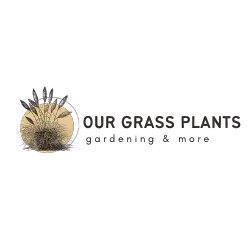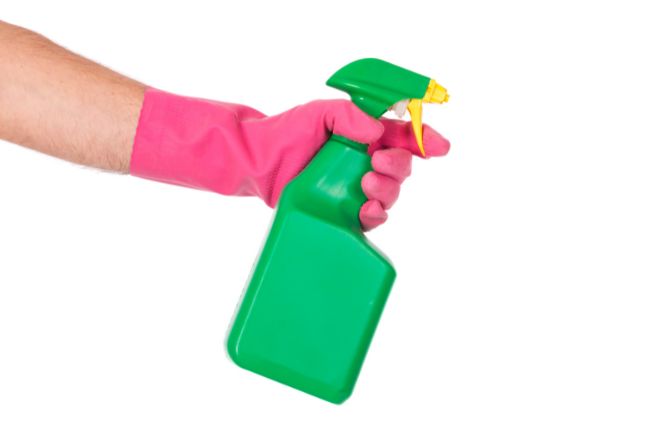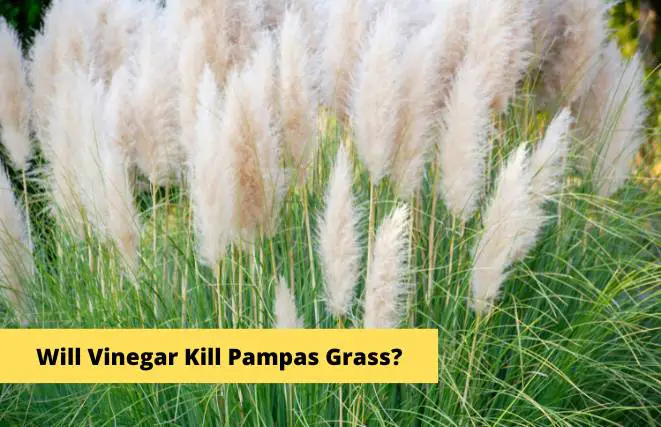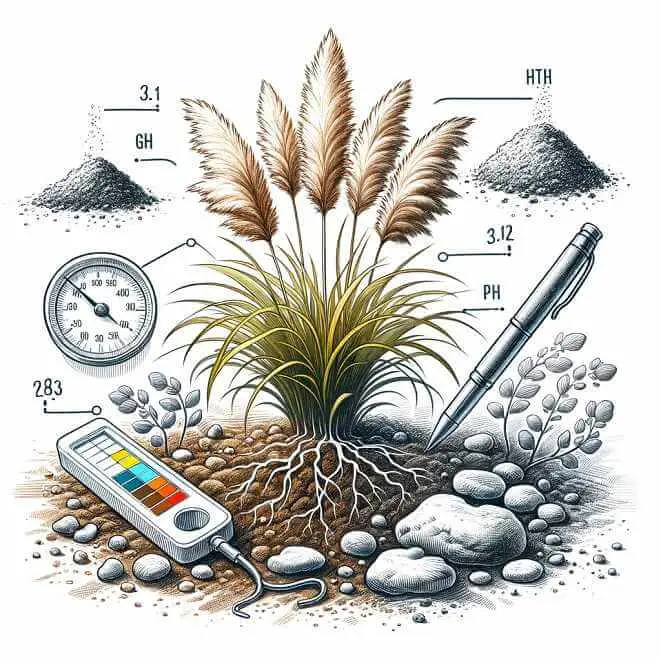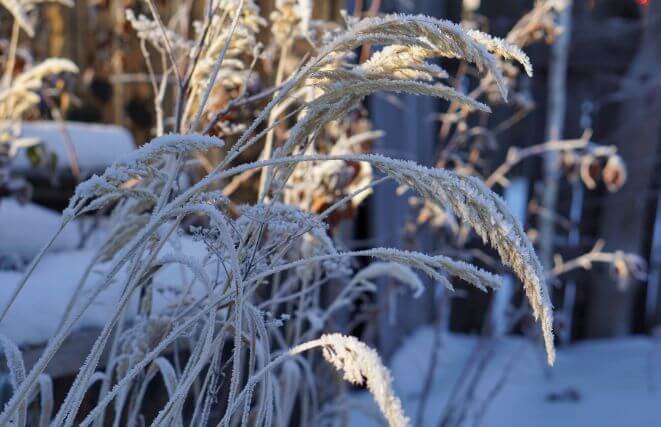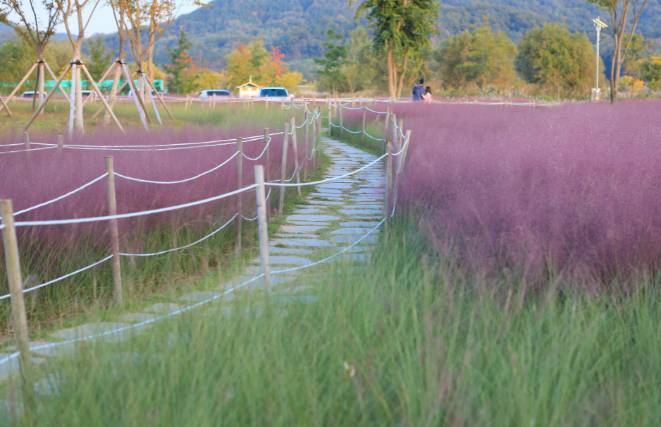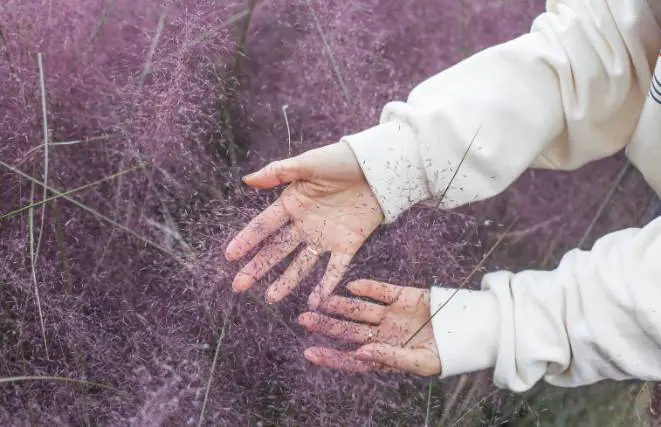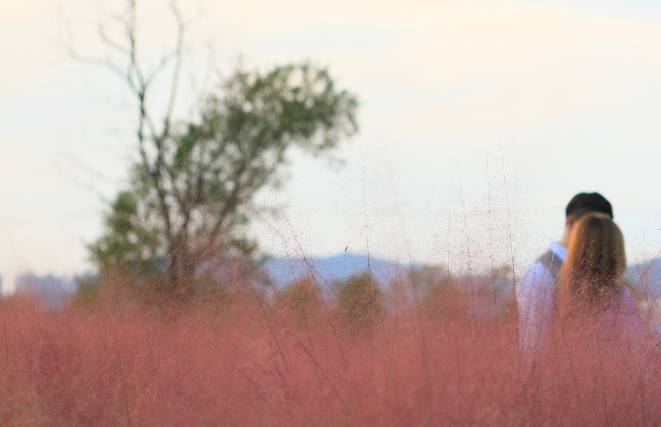Weeds can be a nuisance in any garden or lawn. They compete with desirable plants for nutrients and water, and can quickly take over an area if left unchecked. While there are many weed control methods available, some gardeners have turned to using bleach as a weed killer. In this article, we’ll explore whether bleach is an effective and safe way to control weeds, and provide some alternative methods for weed control.
What is Bleach?
Bleach is a chemical substance commonly used for cleaning, disinfection, and laundry purposes. It is a strong oxidizing agent that is capable of removing stains, whitening fabrics, and killing certain types of microorganisms. The primary active ingredient in bleach is sodium hypochlorite (NaClO) or hydrogen peroxide (H2O2), depending on the type of bleach.
Bleach is typically a clear liquid with a strong, distinctive odor. It is highly reactive and should be handled with care. When using bleach, it is important to follow the manufacturer’s instructions and take appropriate safety precautions, such as wearing gloves, eye protection, and ensuring proper ventilation.
Can bleach be used as a weed killer?
Bleach is a common household cleaning product that contains sodium hypochlorite, a chemical that can kill bacteria, viruses, and fungi. Some gardeners have tried using bleach to kill weeds because it’s readily available and relatively inexpensive. However, there are several disadvantages to using bleach as a weed killer.
Advantages of using bleach to kill weeds
One advantage of using bleach as a weed killer is that it can be effective in killing weeds that grow in cracks or crevices in sidewalks, driveways, or patios. Bleach can also be used to disinfect gardening tools, pots, and other items that may have come into contact with diseased plants.
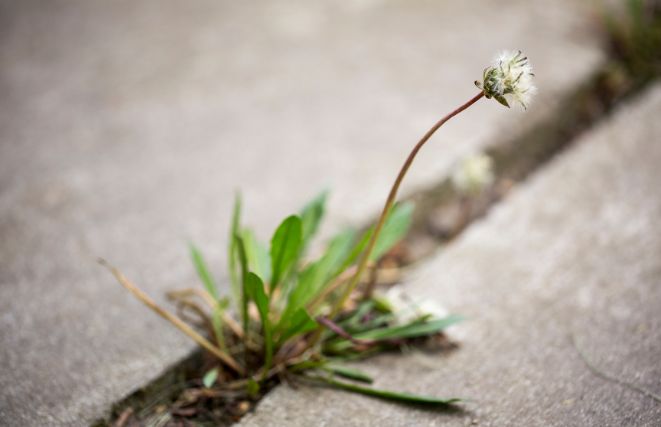
Disadvantages of using bleach to kill weeds
Despite its advantages, using bleach as a weed killer has several disadvantages. For one, bleach is not selective and can kill any plant it comes into contact with, including desirable ones. Additionally, bleach can be harmful to the environment and can leach into the soil, potentially contaminating groundwater. Finally, bleach can be hazardous to handle, and precautions need to be taken to ensure safe use.
How to Use Bleach As a Weed Killer?
While bleach is not a recommended or widely used method for weed control, if you still choose to use bleach as a weed killer, here are some guidelines to follow:
- Choose the Right Type of Bleach: Use chlorine bleach, which typically contains sodium hypochlorite, as it has stronger weed-killing properties compared to oxygen bleach.
- Dilute the Bleach: Bleach is a highly concentrated chemical, so it’s important to dilute it before application. Mix one part bleach with five parts water to create a diluted bleach solution.
- Safety Precautions: Wear protective clothing, including gloves, long sleeves, long pants, and eye protection, to prevent direct contact with the bleach solution.
- Target the Weeds: Apply the diluted bleach solution directly to the leaves and stems of the weeds you want to eliminate. Avoid spraying nearby desirable plants, as bleach can harm or kill them.
- Reapplication: Bleach is not a systemic herbicide, meaning it does not translocate throughout the plant to kill the roots. As a result, repeated applications may be necessary to completely kill the weeds.
Comparison table for using bleach as a weed killer
| DO | DON’T |
|---|---|
| Use caution when handling bleach and wear protective clothing and gloves | Don’t apply bleach on a windy day as it can easily spread to desirable plants and areas |
| Dilute bleach with water according to the manufacturer’s instructions | Don’t use bleach on or near edible plants or water sources |
| Apply bleach to weeds directly and avoid overspraying onto desirable plants | Don’t use bleach as a long-term solution for weed control as it can harm soil health |
| Rinse the area with water after applying bleach | Don’t apply bleach to soil or use it as a general-purpose cleaner |
| Dispose of leftover bleach and containers properly | Don’t mix bleach with other chemicals or cleaning products |
It’s important to remember that while bleach can be effective in killing weeds, it’s not the best option for weed control. Bleach is harmful to the environment, can kill desirable plants, and can be hazardous to handle. It’s always a good idea to consider safer and more effective alternatives, such as organic methods or chemical weed killers that are specifically formulated for weed control.
How does bleach kill weeds? How does it work?
Bleach kills weeds by oxidizing or breaking down the plant tissues, eventually leading to their death. When bleach comes into contact with plant cells, it reacts with the proteins and enzymes inside the cell, causing them to break down. As a result, the plant can no longer produce energy through photosynthesis or transport nutrients and water, leading to its eventual death.
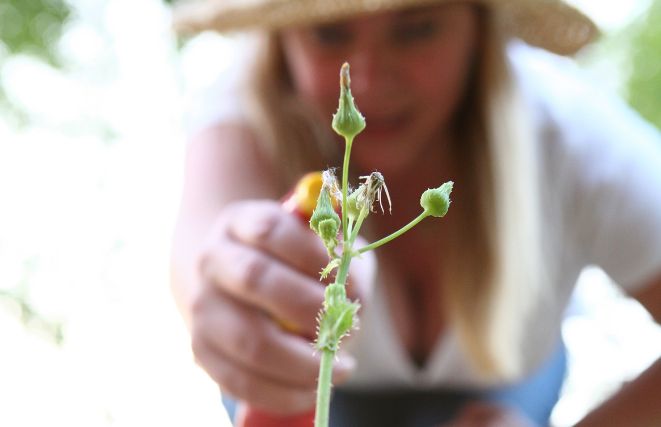
Will bleach kill weeds permanently?
While bleach can kill weeds on contact, it is not an effective long-term solution for permanent weed control. Bleach contains a high concentration of chemicals that can damage or kill plant tissues, including the leaves and stems of weeds. However, bleach does not penetrate the soil to reach the weed’s root system, meaning that it may only provide temporary suppression of weed growth.
Weeds can often regrow from their roots or from seeds in the soil, necessitating repeated applications of bleach to keep them at bay. Additionally, the use of bleach as a weed killer can have harmful effects on surrounding vegetation and the overall soil health. It is advisable to explore more targeted and sustainable methods, such as herbicides specifically formulated for weed control or manual removal, for long-lasting and environmentally responsible weed management.
Where To Use Bleach Weed Killer?
Bleach can be used as a weed killer in specific areas where you want to eliminate vegetation completely. Here are a few examples of where bleach can be applied as a weed killer:
- Cracks and crevices: Bleach can be used to kill weeds growing in cracks between pavement, concrete, or brickwork.
- Driveways and walkways: Apply bleach to weeds that are growing in gravel driveways, along pathways, or in other non-planting areas.
- Patio or deck areas: If weeds are emerging between patio stones or decking boards, bleach can be used to target and kill them.
- Drainage areas: Bleach can be applied to weeds growing in areas where water drains, such as gutters, downspouts, or drainage ditches.
- Non-vegetation areas: Use bleach in spots where you want to prevent any plant growth, such as around utility poles, fence lines, or outdoor structures.
It’s important to use caution and apply bleach only to the specific weeds you want to eliminate, avoiding contact with desirable plants or grass.
Does diluted bleach kill weeds?
Yes, diluted bleach can have some herbicidal properties and can potentially kill weeds. The active ingredient in bleach, sodium hypochlorite, has the ability to damage and kill plant tissues. When applied to the leaves and stems of weeds, bleach can cause them to wither and die.
However, it’s important to consider the following points:
- Effectiveness: Diluted bleach may be more effective at killing young or small weeds with shallow root systems. It may have limited effectiveness on larger or well-established weeds with deep root systems.
- Regrowth: Bleach primarily affects the parts of the weed that it directly contacts, such as the foliage. It may not penetrate deeply enough to reach and kill the entire root system. As a result, some weeds may regrow from the remaining roots.
- Selectivity: Bleach is a non-selective herbicide, meaning it can harm or kill any plant it comes into contact with, including desirable plants. Care must be taken to avoid spraying bleach on desirable vegetation.
Given these considerations, it’s generally recommended to use herbicides specifically formulated for weed control that are designed to be more effective and selective.
What ratio of bleach to water to kill weeds?
If you choose to use bleach as a weed killer, it’s crucial to dilute it properly to reduce its strength and minimize potential harm to plants and the environment. The recommended ratio for diluting bleach for use as a weed killer is:
- Mix 1 part bleach (sodium hypochlorite) with 5 parts water.
For example, if you have one cup (8 fluid ounces) of bleach, you would mix it with five cups (40 fluid ounces) of water. This diluted bleach solution is intended to reduce the concentration of bleach while still retaining some herbicidal properties.
It is important to exercise caution and consider alternative weed control methods that are more environmentally friendly and targeted.
Effect of bleach on soil and surrounding plants
One of the biggest concerns with using bleach as a weed killer is its effect on the soil and surrounding plants. Bleach can have a negative impact on soil microorganisms that are essential for healthy plant growth. Additionally, bleach can leach into the soil and potentially contaminate groundwater. If you have desirable plants growing near the weeds you want to kill, it’s best to avoid using bleach altogether.
Safety precautions when using bleach
If you decide to use bleach as a weed killer, it’s important to take safety precautions. Here are some tips to keep in mind:
- Wear gloves and eye protection when handling bleach
- Work on a calm day to prevent bleach from spraying onto desirable plants or people
- Dilute bleach with water according to package instructions
- Apply bleach directly to the weeds, taking care not to overspray
- Rinse off any bleach that comes into contact with desirable plants with plenty of water
Alternatives to using bleach as a weed killer
Fortunately, there are many alternative methods for weed control that are safe and effective. Here are some options to consider:
Organic methods of weed control
Organic methods of weed control rely on natural products and techniques to suppress weeds. Some examples include:
- Hand weeding: This involves physically removing weeds by hand or with a weeding tool.
- Mulching: Mulch helps suppress weeds by blocking sunlight and reducing moisture in the soil.
- Vinegar: White vinegar can be used as a natural weed killer, but it’s important to dilute it with water to prevent damage to surrounding plants.
Other chemical weed killers on the market
If you’re looking for a chemical weed killer, there are many options available on the market that are safer and more effective than bleach. Here are some examples:
- Glyphosate: This is a commonly used herbicide that kills weeds by interfering with their ability to produce proteins. It’s highly effective and breaks down quickly in the soil.
- Diquat: This herbicide is effective in killing weeds quickly and is less harmful to the environment than bleach. It works by damaging the cell walls of plants.
- Pelargonic acid: This herbicide is made from fatty acids found in plants and animals. It’s non-toxic to humans and animals and breaks down quickly in the soil.
Pros and cons of different weed control methods
When deciding on a weed control method, it’s important to consider the pros and cons of each. Here’s a summary of the different weed control methods discussed in this article:
| Weed Control Method | Pros | Cons |
|---|---|---|
| Bleach | Effective in killing weeds | Harmful to the environment, can kill desirable plants, and hazardous to handle |
| Organic Methods | Safe and effective | May require more time and effort than chemical methods |
| Chemical Weed Killers | Effective and convenient | Harmful to the environment and may have long-term effects on soil health |
It’s important to note that the effectiveness and safety of each method can vary depending on the specific product used and how it’s applied. Always read the label and follow the manufacturer’s instructions carefully when using any weed control product.
Will chlorine kill weeds?
Yes, bleach, containing chlorine, can be used as a weed killer due to its ability to dehydrate and damage plant tissues. It is effective on young, tender weeds but can harm any plant it contacts, including desired ones. Diluting bleach significantly (around 1 part bleach to 10 parts water) and applying it directly to weed foliage can minimize its non-selective impact.
However, its use as a weed killer has drawbacks, including harm to soil microorganisms, potential leaching into the environment, and safety concerns. Alternatives like boiling water, vinegar, salt, or herbicidal soaps might offer safer and more environmentally friendly options for weed control.
Does bleach kill weeds FAQ
The time it takes for bleach to kill weeds can vary depending on various factors, including the concentration of bleach, the size of the weed, and the weather conditions. In general, bleach can start to show effects on weeds within a few hours of application. However, it may take up to 24 to 48 hours to see complete wilting and death of the weed. Complete eradication of weeds often requires targeting the root system, which may not be achieved through bleach application alone.
Bleach can be effective in killing pampas grass, as it can kill most types of plants when applied directly. However, pampas grass is a large and hardy plant, so it may take multiple applications of bleach to completely kill it. When using bleach to kill pampas grass, it’s important to take proper safety precautions and to avoid overspraying onto surrounding plants or areas. Dilute bleach with water according to the manufacturer’s instructions and apply it directly to the pampas grass using a spray bottle or garden sprayer. Repeat the application as needed until the plant is completely dead.
For more information, click here
Conclusion
In conclusion, while bleach can be effective in killing weeds, it’s not the best option for weed control. Bleach is harmful to the environment, can kill desirable plants, and can be hazardous to handle. Instead, consider using organic methods of weed control or chemical weed killers that are safer and more effective.
Remember to take safety precautions when handling any weed control product, and always follow the manufacturer’s instructions. With a little effort and care, you can keep your garden or lawn weed-free without resorting to harmful chemicals like bleach.
